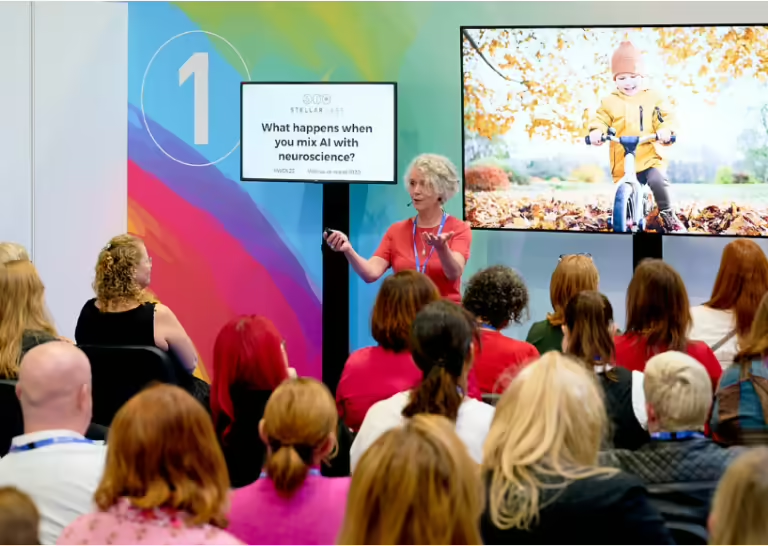Hello and welcome to the 25th Friday Fresh!
Undoubtedly, you’ve found out by now that one of the key factors influencing how many people take your training is the number of people who know that your training exists.
There are many ways to promote yourself and your business. We’re confident you’re already exploring multiple avenues, including SEO, social media promotion, paid advertising, and events.
However, you may not have considered the opportunity to talk about your training on a podcast, and you may not even realise that you’re missing quite a lot.
Why should you care about podcasts?
Although listening to other people’s stories may or may not be your thing, as a training provider, you undoubtedly know that people have different learning preferences. Some people are visual (they need their sight stimulated in order to learn), other people prefer reading, the third group is kinesthetic (they need to be involved physically), and the last group is auditory—they retain information by listening to it.
Most social media channels serve the first two groups. Kinesthetic people seek events where they can move about, but auditory people worship podcasts. They’re a great way to pass commuting time, an excellent addition to gardening, and a wonderful companion for long walks.
To complement this with some statistics, according to the latest available data, there are 504.9 million podcast listeners worldwide. That equates to 23.5% of all internet users. Impressive, right?
Why would a podcast creator feature you?
If your business is small or just starting, you may be tempted to believe that a podcast with a million listeners won’t be willing to feature you. You’ll be surprised to know, however, that podcast creators are constantly on the lookout for stories to feature.
After all, they care predominantly about engagement, and everyone’s creativity suffers a version of “writer’s block” occasionally. Besides the somewhat obvious need for podcast creators to attract sponsorship (which you may also want to consider), they constantly need a good story to either base an entire episode on, or simply to add to the topic they’re already covering.
So, how do you pitch yourself?
1. Start small & targeted
To begin your journey as a podcast guest, your best bet is to start small and choose a niche podcast in your industry. It’s challenging to find out how many subscribers a podcast has, but if you’re serious about this, you can use Rephonic to learn more about any podcast you’re interested in.
To cater to all corporate clients, offer both in-person and remote training options. This adaptability removes barriers for L&D managers, ensuring your training is a top choice regardless of logistical constraints.
2. Prepare your story
When you reach out to a podcast host, the most important thing to give them is a story that will grab their attention. As with every good story, yours, too, must have a few key elements:
- a protagonist (think Harry Potter)
- a villain (Voldemort)
- supporting protagonist (think Dumbledore)
- challenges
- triumph
Your story doesn’t need to be as complex and twisted as Harry Potter’s. For example, you can discuss the importance of driving manual cars and share the story of a learner who was able to address an emergency situation because of the training you provided.
Include their struggles and how you addressed them, and you’ll be able to craft a compelling story of misfortune and success.
3. Add a visual element
Many people sending pitches to podcasts forget to include a visual element, thinking that since this is audio content, it’s unnecessary. But remember that the podcast creator is also a person, and a picture is worth a thousand words. Allow them to visualise the story you’ve just told them.
4. Add a voice note
A rarely shared fear of podcast creators is that their guests may not have very good articulation, which may affect the podcast’s audio quality. To address this unspoken fear, attach a voice note or a link to a video or audio of you speaking so the creator can hear your voice in advance.
5. Add your bio
Last but not least, remember to include your personal bio along with your pitch. Make it short and sweet (a paragraph), allowing the podcast creator to easily introduce you if they decide to invite you as a guest or feature you in another way.
Final Thoughts







